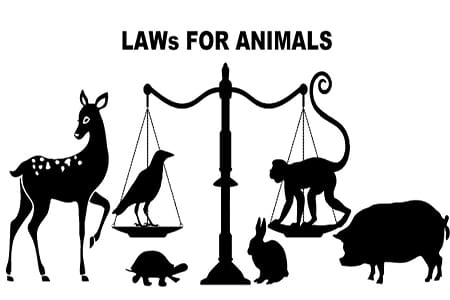Ny Animal Welfare and Rights dia manasa antsika handinika ny fetra ara-moraly amin'ny fifandraisantsika amin'ny biby. Na dia manantitrantitra ny fampihenana ny fijaliana sy ny fanatsarana ny toe-piainana aza ny fiahiana ny biby, dia lasa lavitra kokoa ny zon'ny biby — mitaky ny fanekena ny biby ho olona manana ny lanjany, fa tsy amin'ny maha-fananana na loharanon-karena fotsiny. Ity fizarana ity dia mikaroka ny tontolo mivoatra izay ifantohan'ny fangoraham-po, ny siansa ary ny fahamarinana, ary ny fitomboan'ny fahatsiarovan-tena dia manohitra ireo fitsipika hatry ny ela izay manamarina ny fanararaotana.
Avy amin'ny fiakaran'ny fenitra maha-olombelona amin'ny fambolena indostrialy ka hatramin'ny ady ara-dalàna ho an'ny maha-biby, ity sokajy ity dia mampiseho sarintany ny tolona manerantany hiarovana ny biby ao anatin'ny rafitry ny olombelona. Manadihady ny tsy fahombiazan'ny fepetra momba ny fifanampiana matetika amin'ny famahana ny olana fototra: ny finoana fa antsika ny biby. Ny fomba fiasa mifototra amin'ny zon'olombelona dia manohitra tanteraka an'io toe-tsaina io, mitaky fiovàna avy amin'ny fanavaozana mankany amin'ny fanovana—izao tontolo izao izay tsy karakaraina amin'ny fomba malefaka kokoa ny biby, fa hajaina ifotony ho toy ny zavaboary manana ny tombontsoany manokana.
Amin'ny alàlan'ny famakafakana mitsikera, ny tantara ary ny fisoloana vava, ity fizarana ity dia mampiomana ny mpamaky hahatakatra ny fahasamihafana misy eo amin'ny fifanampiana sy ny zo, ary mametra-panontaniana ireo fomba fanao izay mbola manjaka amin'ny fambolena, fikarohana, fialamboly ary ny fiainana andavanandro. Ny tena fandrosoana dia tsy miankina amin'ny fikarakarana biby tsara kokoa, fa amin'ny fanekena fa tsy tokony horaisina ho fitaovana mihitsy izy ireo. Eto isika dia mijery ny ho avy mifototra amin'ny fahamendrehana, ny fiaraha-miory ary ny fiaraha-miaina.
Voafandrika ao anaty takelaka sterile ary iharan'ny fanandramana maharary, ny biby an-tapitrisany dia miaritra ny fijaliana tsy takatry ny saina amin'ny anaran'ny siansa sy ny fiarovana ny vokatra. Ity fomba mampiady hevitra ity dia tsy ny ahiahy momba ny etika ihany fa tsy misy dikany ihany koa noho ny tsy fitovian'ny biolojika eo amin'ny olona sy ny biby, ka mitondra vokatra tsy azo itokisana. Miaraka amin'ny vahaolana mifanila toy ny amin'ny fitsapana vitro sy ny simulasi solosaina dia manolotra vahaolana sy vahaolana tsara kokoa, mazava fa tsy maintsy tapitra ny andrana fitiliana biby. Ato amin'ity lahatsoratra ity, manazava ny habibiana ao ambadiky ny fitsapana biby isika, mandinika ny lesoka ary manolo-kevitra ny fomba fiasa mahomby izay laharam-pahamehana tsy misy dikany


























































